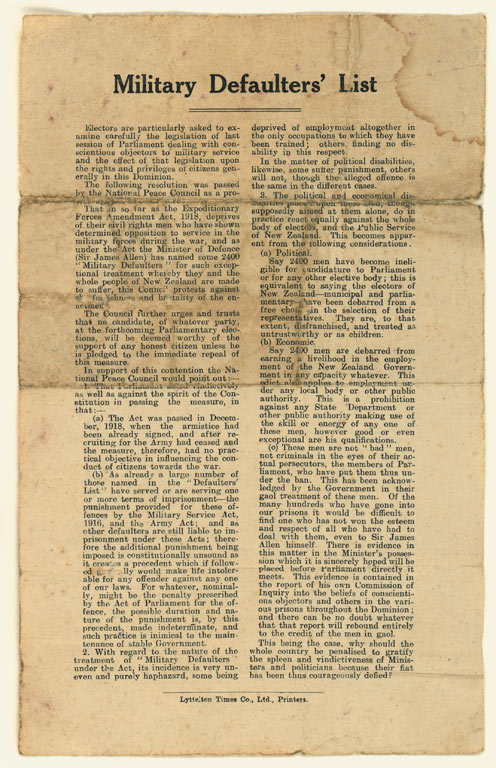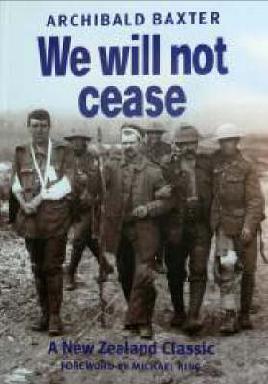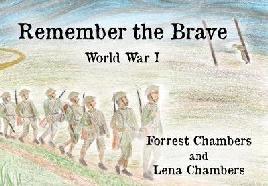New Zealand entered the First World War on the 5th August 1914. At the outbreak of war, most New Zealanders supported soldiers volunteering to fight on the other side of the world. However voices of dissent emerged with the introduction of conscription on the 1st August 1916. Conscription meant that the New Zealand government could call up men aged between 20 and 45 for military service. Opposition to conscription came from various groups – including religious groups with pacifist beliefs, socialists who believed they were being asked to defend an oppressive capitalist system, and Irish nationalists who opposed the British government due to occupancy of their homeland.
Men who were called up but refused military service were called 'conscientious objectors'. Harsh treatment of conscientious objectors was common. In 1917 Archibald Baxter was kept in a prison at the Trentham Military Camp, Upper Hutt. Later that year he and other conscientious objectors were sent to Britain. On the voyage they were forced into uniforms and physically and verbally abused. From Britain they were moved to the frontline in France at the Étaples military base in France. Here they were tied to a post in which their hands were tied behind their backs and their knees and feet bound for hours.
Baxter later wrote an acclaimed memoir called We Will Not Cease. In it he describes his experiences with humility. We will not cease is recognised as a classic in New Zealand literature.
- New Zealanders in the First World War – Conscientious Objectors
- Conscientious Objectors: Cowards or courageous?
- New Zealanders in World War 2 – Conscientious Objectors
- Courtney Archer, 1918-2002
- George Lindsay Crozier 1914-1992
- Reverend David Mortimer Taylor, 1910-1995
Military Defaulters' List: Pamphlet alerting electors to the consequences of the repressive legislation affecting conscientious objectors after the First World War.

Sources
- Conscientious objection and dissent in the First World War, (Ministry for Culture and Heritage), updated 14-Jan-2020
- Recruiting and conscription, (Ministry for Culture and Heritage), updated 17-Nov-2016
- New Zealand enters the First World War, (Ministry for Culture and Heritage), updated 25-Jul-2017
- David Grant. Baxter, Archibald McColl Learmond, Dictionary of New Zealand Biography, first published in 1996, updated June, 2015. Te Ara - the Encyclopedia of New Zealand, (accessed 7 April 2021)
Further reading
- We Will Not Cease Archibald Baxter
- Remember the Brave Forrest Chambers
- Field Punishment No. 1 Archibald Baxter, Mark Briggs & New Zealand's Anti-militarist Tradition David Grant
- Conscientious objectors National Library guide






Add a comment to: New Zealand Conscientious objectors in the First World War